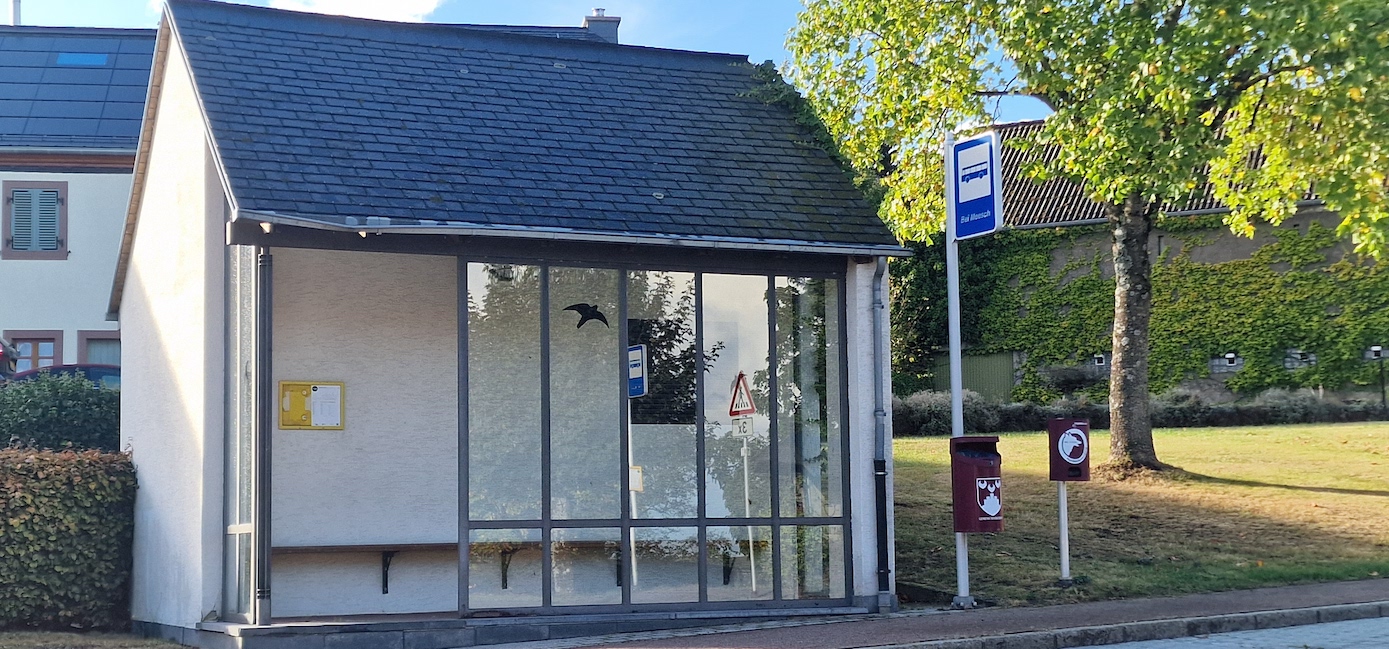„Rezent Ännerungen un de Buspläng féieren dozou, datt d’Schoulkanner vu Buerschent an Ëmgéigend, déi mat der Linn 134 op Dikrech an de Kolléisch an an den Nordstad-Lycée fueren, mat spierbaren Zäitverloschter musse rechnen, dat duerch ze laang Waardezäiten zu Ettelbréck op der Gare an duerch dagdeeglech Stauen, déi et schwéier maachen, den Uschloss un den nächste Bus ze kréien.
Momentan ass den neie Bus-Horaire sou ugeluecht, datt etlech Elteren a Schüler, déi schonn de Führerschäin hunn, mam Auto op Dikrech wäerte fueren, amplaz op den ëffentlechen Transport zréckzegräifen. Mam Auto brauch een nämlech ronn 20 Minutte fir op Dikrech, mam ëffentlechen Transport sinn d‘Schüler dacks méi wéi eng Stonn ënnerwee; dat, well de Busplang net adequat un den Horaire vun der Schoul adaptéiert ass, respektiv well d’Schüler, déi vun Dikrech kommen, zu Ettelbréck mussen ëmsteigen an do vill ze laang musse waarden ier si eng Verbindung fir op Buerschent kréien.
An deem Kader wollt ech dem Här Minister fir Mobilitéit an ëffentlech Aarbechten folgend Froe stellen:
- Ass den Här Minister bereet fir een direkte Bus vu Buerschent op Dikrech fueren ze loossen, sou dass d’Schüler ënner gudde Konditiounen an d’Dikrecher Lycéeë gefouert kënne ginn?
- Firwat gouf de Bus, deen um 7.24 Auer zu Buerschent fortgefuer ass, ofgeschaf, obwuel dëse fir d’Schüler déi mannsten Zäitverloschter mat sech bruecht huet?
- Firwat fiert de Bus K19 just op d’Buerschtermillen an an d’Schlënner, mä awer net op Buerschent selwer?“
Answer
- D’Verwaltung fir ëffentlechen Transport huet fir d’Rentrée 2022/23 eng zousätzlech Schülerlinn “K45 Tadler – Bourscheid – Buerden – Ettelbruck” agefouert. Des ass moies verbonne mat der bestehender Schülerlinn “K34 Ettelbruck – Diekirch”. Esou kënnen d’Schüler vu Buerschent an Ëmgéigend ënner bessere Konditiounen an d’Dikrecher Lycéeë gefouert ginn.
- De Bus as an deem Sënn net ofgeschaf ginn, ma duerch déi nei Schülerlinn “K45” ersat ginn.
- Vun der Topographie hier ergëtt et méi Sënn, dass déi nei Schülerlinn “K45” op Buerschent fiert anstatt der Schülerlinn “K19”.






